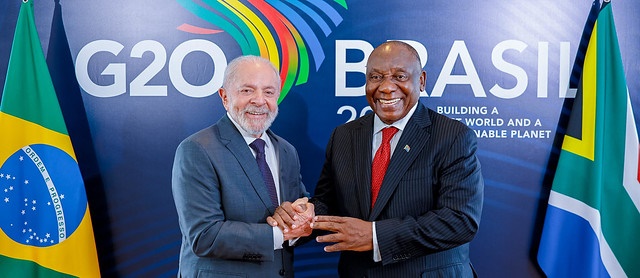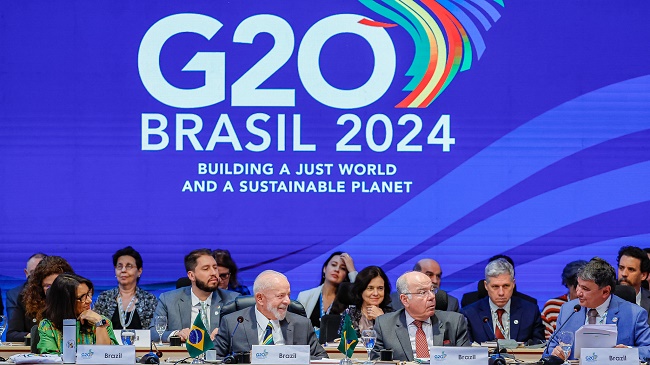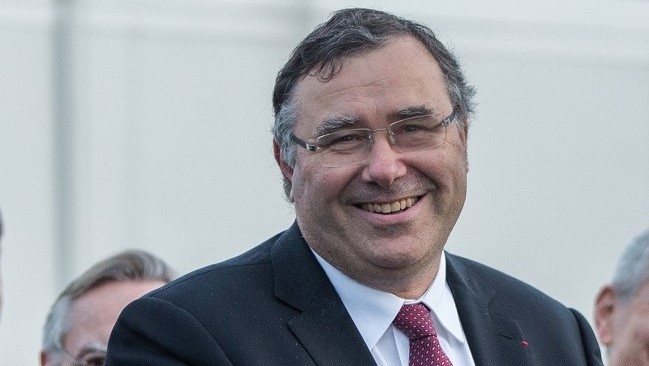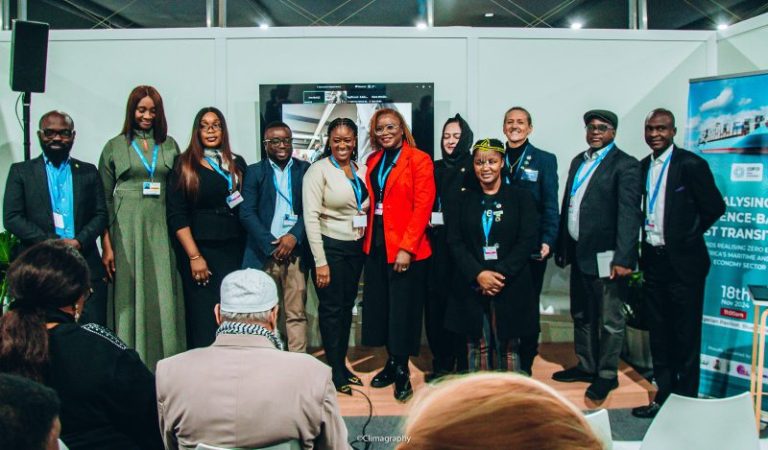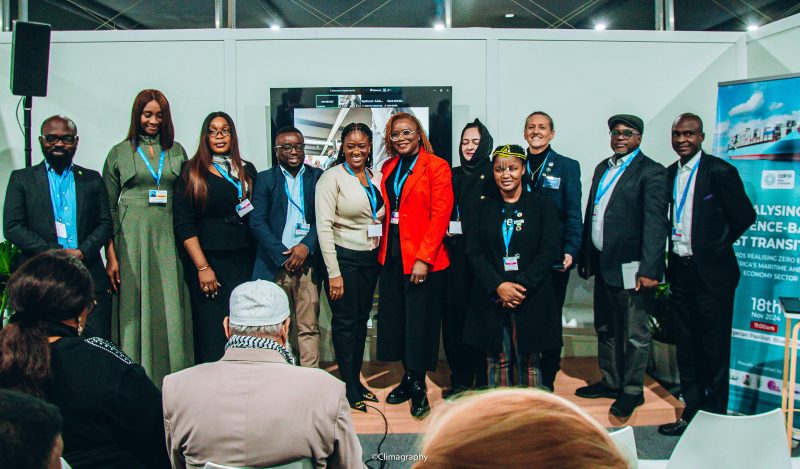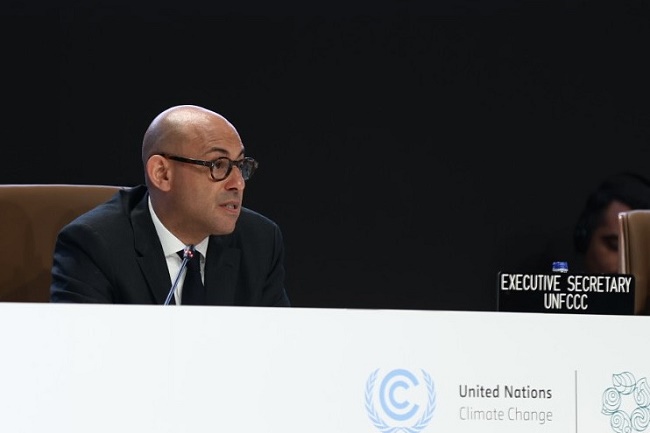President Bola Tinubu on Monday, November 18, 2024, said the creation of the Global Alliance Against Hunger and Poverty, championed by President Luiz Inacio Lula da Silva of Brazil, was pivotal in the global fight against hunger and poverty.

Tinubu said this at the 19th G20 Leaders Summit opening session in Rio de Janeiro, Brazil.
He lauded the initiative and described it as the right step to address one of the world’s most significant challenges.
“This bold and visionary step underscores Brazil’s leadership in addressing one of the most urgent and persistent challenges facing our world today.
“The creation of this Alliance marks a significant milestone in our global efforts to eradicate hunger and poverty, and it also sends a powerful message of solidarity to vulnerable populations around the globe.
“By fostering collaboration between governments, international organisations, and civil society, this initiative offers a comprehensive approach not only to addressing immediate needs but also tackling the structural causes of hunger and poverty,” he said.
Tinubu compared the global initiative to one of the eight priority areas he outlined at his inauguration 18 months ago, expressing Nigeria’s eagerness to adopt international best practices to advance its economic development.
According to him, Nigeria’s endorsement of the declaration of commitment to join the Global Alliance is a significant step in its efforts to address hunger and poverty by leveraging international cooperation and resources to bolster domestic strategies.
He added that by supporting the initiative, Nigeria also demonstrated a solid commitment to realising the Sustainable Development Goals (SDGs), particularly SDG 1, which focuses on eradicating poverty, and SDG 2, which aims to achieve zero hunger.
“These goals are at the core of Nigeria’s development agenda, and the Alliance offers a platform to accelerate progress towards them.
“By collaborating with international partners, Nigeria aims to leverage best practices, innovative solutions, and financial support to enhance its efforts to combat poverty and hunger.
“The endorsement reinforces Nigeria’s role as a key player in global efforts to promote sustainable development and improve the quality of life for all its citizens,” Tinubu said.
Tinubu emphasised the urgent need for the United Nations Security Council reform to ensure its continued relevance in global interventions.
He reiterated Nigeria’s readiness and capability to represent Africa within this elite group.
President Tinubu called on the G20 to champion this noble ideal, having admitted the African Union as a group member.
“The Security Council should expand its permanent and non-permanent member categories to reflect the world’s diversity and plurality. Africa deserves priority in this.
“The Security Council should expand its permanent and non-permanent member categories to reflect the world’s diversity and plurality better.
“Africa deserves priority in this process, and two permanent seats should be allocated to it with equal rights and responsibilities. Nigeria stands ready and willing to serve as a representative of Africa in this capacity,” said Tinubu.
Tinubu, in a statement read on his behalf by Amb. Yusuf Tuggar, Minister of Foreign Affairs, noted that, “the G20 now wears a toga of a forward-looking international institution that upholds reform-minded multilateralism.”
He commended the decision of the G20 to grant permanent membership to the African Union and for its consistency in sustaining the tradition of inviting guest countries to join the group.
This broad participation, he said, allowed the opportunity for more inclusive and effective discussions to address shared global challenges.
“Some permanent members of the Council have shown promising signs of support for this process, which is a positive development. We welcome this shift in attitude and call for a faster pace to the long overdue change.
“The world faces various challenges, including extreme poverty, inequality, climate change, terrorism, and global conflicts,” said the President.
According to him, these issues are exacerbated by longstanding inequities in the global governance system.
He added that they had led to unsustainable sovereign debt and distortions in access to capital markets, trade imbalances, unfair representations and hindered development in the Global South.
“It is our responsibility to find pragmatic solutions to fix these imbalances.
“Particularly pressing is global taxation, which profoundly impacts developing countries.
“The current international tax system, largely shaped by the interests of more affluent nations, often leaves developing countries at a disadvantage, especially in taxing digital economies.
“This systemic imbalance has led to significant revenue losses, hampering our efforts towards sustainable development and economic self-reliance,” the Nigerian leader said.
He highlighted that Nigeria, alongside other African Group member states, championed a historic initiative at the United Nations: calling for a framework Convention on Tax to establish a more equitable and inclusive global tax system.
He urged the G20 to heed the call by countries, especially those of the global South, to reform the international financial architecture.
“Multilateral institutions must be revamped to bridge the gap between the Global North and South.
“This is the path for the future and one the G20 must champion. Nigeria is committed to being part of that future through active participation in the G20 and our steadfast support for achieving SDG 2030 targets,” the President added.
By Salif Atojoko

